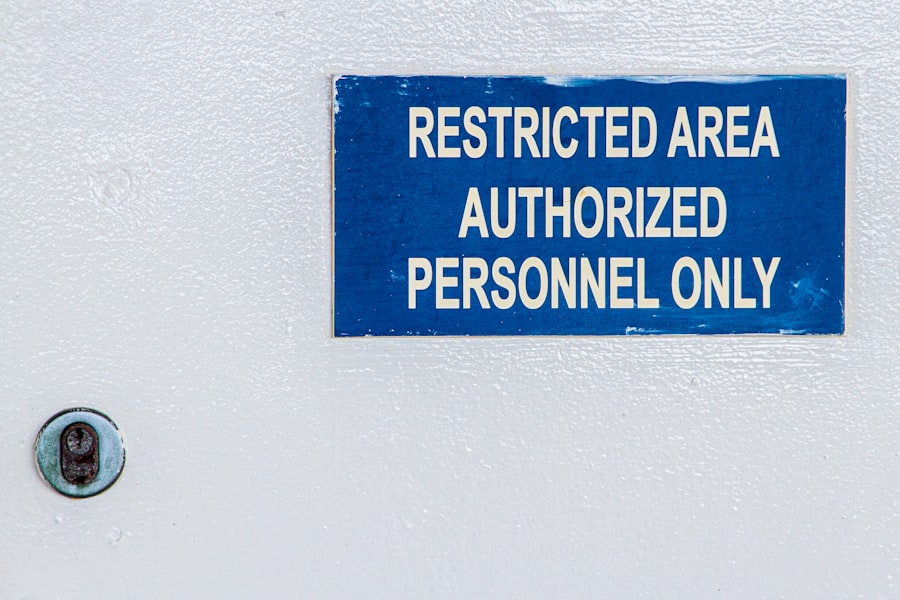Depersonalization-derealization (DPDR) is a complex psychological phenomenon that can leave you feeling detached from your own thoughts, feelings, or sense of self. You may experience a sense of unreality, as if you are observing your life from a distance, almost like a spectator in your own existence. This disconnection can be unsettling and may lead to confusion about your identity and reality.
Understanding this condition is crucial for anyone who experiences it, as it can often be misinterpreted or dismissed as mere stress or anxiety. The experience of depersonalization can manifest in various ways. You might feel as though you are living in a dream or that your body doesn’t belong to you.
On the other hand, derealization involves a sense of detachment from your surroundings, making the world seem foggy or distorted. These experiences can be triggered by extreme stress, trauma, or even prolonged periods of anxiety. Recognizing that these feelings are part of a broader psychological response can help you approach them with compassion rather than fear.
It’s essential to remember that you are not alone in this experience; many people encounter similar feelings at some point in their lives.
Key Takeaways
- Depersonalization-Derealization is a mental health condition characterized by feeling detached from oneself and the surrounding environment.
- Triggers for depersonalization-derealization can include stress, trauma, substance abuse, and anxiety, and symptoms may include feeling disconnected from emotions and sensations.
- Seeking professional help from a therapist or psychiatrist is crucial for managing depersonalization-derealization and finding effective treatment options.
- Developing coping strategies such as mindfulness, grounding techniques, and relaxation exercises can help individuals manage symptoms and reduce the impact of depersonalization-derealization on daily life.
- Creating a support system of friends, family, or support groups can provide valuable emotional support and understanding for individuals dealing with depersonalization-derealization.
Recognizing Triggers and Symptoms
Identifying the triggers and symptoms associated with depersonalization-derealization is a vital step in managing the condition. You may notice that certain situations or environments provoke feelings of detachment. For instance, high-stress situations, such as public speaking or significant life changes, can act as catalysts for these experiences.
By keeping a journal to track when these feelings arise, you can begin to identify patterns and specific triggers that contribute to your sense of disconnection. Symptoms of DPDR can vary widely from person to person. You might experience emotional numbness, difficulty concentrating, or a sense of being disconnected from your body.
These symptoms can be distressing and may lead to increased anxiety or fear about your mental state. It’s important to acknowledge these feelings without judgment. Understanding that they are symptoms of a condition rather than indicators of a personal failing can help you approach your experiences with greater clarity and self-compassion.
Seeking Professional Help

If you find yourself struggling with depersonalization-derealization, seeking professional help is a crucial step toward recovery.
Therapy options such as cognitive-behavioral therapy (CBT) have been shown to be effective in treating DPDR by helping you reframe negative thought patterns and develop healthier coping mechanisms.
In addition to therapy, medication may also be an option worth exploring.
A mental health professional can help determine the best course of action based on your unique situation and needs.
Remember, reaching out for help is a sign of strength, not weakness; it demonstrates your commitment to understanding and improving your mental health.
Developing Coping Strategies
| Strategy | Definition | Example |
|---|---|---|
| Positive Reframing | Seeing a stressful situation in a more positive light | Finding the silver lining in a difficult situation |
| Problem-Solving | Actively addressing the source of stress | Creating a plan to tackle a challenging task |
| Seeking Support | Reaching out to others for help and guidance | Talking to a friend or therapist about your concerns |
| Self-Care | Engaging in activities that promote well-being | Exercising, meditating, or taking a relaxing bath |
Developing effective coping strategies is essential for managing the symptoms of depersonalization-derealization. You might find it helpful to create a personalized toolkit of techniques that resonate with you. For instance, grounding exercises can help anchor you in the present moment when feelings of detachment arise.
Techniques such as focusing on your breath, engaging your senses, or practicing progressive muscle relaxation can be beneficial in reducing feelings of disconnection. Another effective strategy is to establish a routine that incorporates self-care practices into your daily life. Engaging in regular physical activity, maintaining a balanced diet, and ensuring adequate sleep can significantly impact your overall well-being.
Additionally, consider incorporating creative outlets such as art, writing, or music into your routine. These activities can serve as powerful forms of expression and may help you reconnect with your emotions and sense of self.
Creating a Support System
Building a strong support system is vital for anyone dealing with depersonalization-derealization. Surrounding yourself with understanding friends and family members can provide you with the emotional support needed during challenging times. Open communication about your experiences can foster empathy and understanding among those close to you, allowing them to offer assistance when needed.
In addition to personal relationships, consider joining support groups or online communities where individuals share similar experiences. Connecting with others who understand what you’re going through can be incredibly validating and comforting. These spaces allow for shared stories and coping strategies, creating a sense of belonging that can alleviate feelings of isolation often associated with DPDR.
Practicing Mindfulness and Grounding Techniques

Mindfulness practices can be particularly effective in managing depersonalization-derealization symptoms. By cultivating awareness of the present moment, you can create a buffer against feelings of detachment. Mindfulness meditation encourages you to observe your thoughts and feelings without judgment, allowing you to acknowledge them without becoming overwhelmed.
Grounding techniques are also valuable tools in your coping arsenal. When you feel disconnected from reality, grounding exercises can help bring you back to the present moment. Simple practices such as focusing on the sensations of your feet on the ground or holding onto an object with texture can help anchor you in reality.
These techniques serve as reminders that you are here and now, counteracting the disorienting effects of DPDR.
Managing Stress and Anxiety
Managing stress and anxiety is crucial for reducing the frequency and intensity of depersonalization-derealization episodes. You may find it helpful to identify specific stressors in your life and develop strategies to address them effectively. This could involve setting boundaries at work, practicing time management skills, or engaging in relaxation techniques such as deep breathing exercises.
Incorporating regular physical activity into your routine can also play a significant role in managing stress levels. Exercise releases endorphins, which are natural mood lifters that can help alleviate anxiety and improve overall well-being. Additionally, consider exploring relaxation techniques such as yoga or tai chi, which combine physical movement with mindfulness practices to promote relaxation and reduce stress.
Finding Meaning and Purpose in Daily Activities
Finding meaning and purpose in daily activities can significantly enhance your overall well-being and help combat feelings of depersonalization-derealization. Engaging in activities that bring you joy or fulfillment can serve as powerful reminders of your identity and connection to the world around you. Whether it’s pursuing a hobby, volunteering, or spending time with loved ones, these experiences can ground you in reality.
Additionally, consider setting small goals for yourself each day. Accomplishing even minor tasks can provide a sense of achievement and purpose, reinforcing your connection to yourself and your environment. Reflecting on what brings you joy and fulfillment can guide you toward activities that resonate with your values and passions, ultimately fostering a deeper sense of meaning in your life.
In conclusion, navigating the complexities of depersonalization-derealization requires understanding, support, and effective coping strategies. By recognizing triggers and symptoms, seeking professional help, developing coping mechanisms, creating a support system, practicing mindfulness, managing stress, and finding meaning in daily activities, you can take proactive steps toward reclaiming your sense of self and reality. Remember that healing is a journey; be patient with yourself as you work through these experiences and embrace the path toward greater well-being.
When experiencing illness, it’s not uncommon for individuals to encounter feelings of depersonalization-derealization, where they may feel disconnected from their body or surroundings. This phenomenon can be particularly distressing, as it adds an additional layer of discomfort to the physical symptoms of being sick. For those interested in exploring this topic further, an insightful article on the subject can be found on Unplugged Psych. This resource delves into the psychological aspects of depersonalization-derealization and offers guidance on managing these feelings. You can read more about it by visiting Unplugged Psych.
LEARN MORE About Depersonalization & Derealization
FAQs
What is depersonalization-derealization when sick?
Depersonalization-derealization when sick refers to the experience of feeling detached from oneself (depersonalization) and/or feeling that the surrounding environment is unreal or unfamiliar (derealization) during an illness or sickness.
What are the symptoms of depersonalization-derealization when sick?
Symptoms of depersonalization-derealization when sick may include feeling disconnected from one’s body or emotions, experiencing a sense of unreality or detachment from the environment, and feeling like one is observing themselves from outside their body.
What causes depersonalization-derealization when sick?
Depersonalization-derealization when sick can be caused by a variety of factors, including the physical and psychological stress of being ill, the side effects of certain medications, or the body’s natural response to illness and fever.
How is depersonalization-derealization when sick diagnosed?
Diagnosing depersonalization-derealization when sick typically involves a thorough medical evaluation to rule out any underlying physical conditions that may be contributing to the symptoms. A mental health professional may also conduct a psychological assessment to evaluate the presence and severity of depersonalization-derealization symptoms.
What are the treatment options for depersonalization-derealization when sick?
Treatment for depersonalization-derealization when sick may involve addressing the underlying illness or medical condition, managing stress and anxiety, and seeking support from mental health professionals. Cognitive-behavioral therapy, medication, and relaxation techniques may also be helpful in managing symptoms.
Is depersonalization-derealization when sick a common experience?
Depersonalization-derealization when sick is not uncommon, especially during periods of illness or fever. However, if the symptoms persist or significantly impact daily functioning, it is important to seek medical and mental health support.




